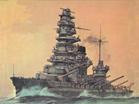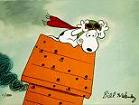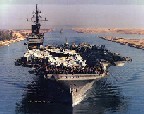We don’t play WitP/AE like Roosevelt and Nimitz. But then we don’t have HR’s that have AU pushing away from the table either. Today, if you factor in the speech by John Curtin on 12/27/41, I seriously wonder if my professor’s had hit the nail on the head. The further you look the more it seems to make sense. And it would go a long way in explaining USN aggressiveness in early 1942. Perhaps Roosevelt told Nimitz/Navy to get out there and fight; not caring at all about any consequences since he knew that they would all be replaced come 1943-44 anyway. What he need was to buy time which would be accomplished with either victories or defeats. We know from our WitP/AE play that battle damage and air losses can push out our time tables. Was Roosevelt betting that no matter what the outcome of these early battles, the US would be keeping Japan busy and telegraphing to the Aussies that they must stand firm for everyone’s sake?
You hit the point .. Let us play a game of chess .. evertime I exchange a piece with you I get that piece back 20 chess moves from now .. the game becomes exchange pieces as fast as possible ..thus the world that Nimitz was working under ..get engaged as soon as possible and take away the tools of aggessiveness as soon as possible ..
In fact, the United States was always under the impression that the IJ would never start anything since the United States could turn loose almost limitless industry. The IJ was thinking US == weak and concerned only with domestic problems and recovering from a depression ....they were thinking imperialist Russia 1908 ... what a miscalculation!! Not only did they wake the tiger .. they p*ss the tiger off ...
My contention is scenrario #2. The US did not ramp up because the IJ was seen as still weak and eventually containable .. if the IJ built up the force in scenrario #2 Congress would be voting down WPA projects and voting in emergency measures like Montana class BB and Essex class CV's .. alas .. [8|]






















